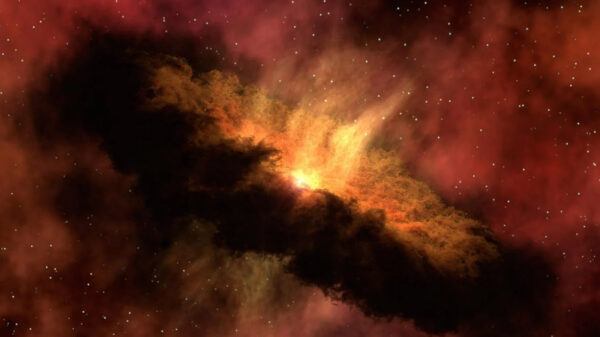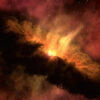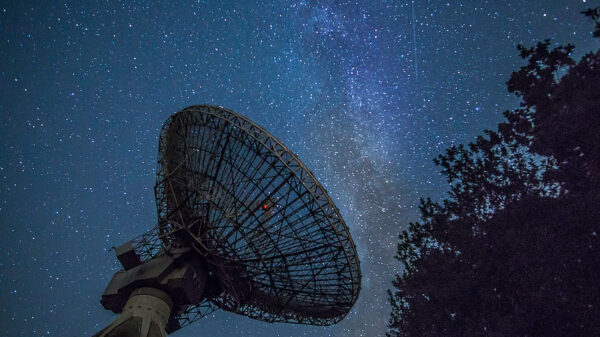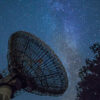One of the classical arguments Christians have offered over the years for the existence of God is the kalam cosmological argument.[1] The kalam cosmological argument can be summarized as follows:[2]
- Everything that begins to exist has a cause of its existence.
- The universe began to exist.
- Therefore, the universe has a cause of its existence.
- No scientific explanation can provide a causal account of the origin of the universe, since such are part of the universe.
- Therefore, the cause must be personal and non-natural.
Atheist philosophers and others have understood the compelling power of this argument and sought to refute its theistic conclusions by offering objections to the underlying claims of the argument.
Many ancient philosophers, including Aristotle, believed the universe had no beginning (and thus, no need for a cause).[3] However, knowledge about the universe drastically changed in the twentieth century as scientists began discovering evidence which indicated the universe had a beginning. Albert Einstein first discovered a series of equations which indicated that all time, space, matter, and physical energy emerged from a singularity, the “Big Bang.” Shortly thereafter, Edwin Hubble discovered that the universe was expanding (further indicating the universe came from a single point in the past).[4] Additional discoveries in the following years have only further confirmed that the universe emerged from a point of singularity. However, scientists have long understood that the beginning of the universe implies a supernatural cause, a conclusion which not every scientist has been comfortable with.
Discontent to accept the implications of a universe with a beginning, some atheists have called into question the first premise of the kalam cosmological argument: that everything which begins to exist has a cause. David Hume argued that this premise was not a priori, “I shall venture to affirm… that the knowledge of this relation is not, in any instance, attained by reasonings a priori; but arises entirely from experience.”[5] Following this line of thought, it has been suggested that because the relationship between an effect and its cause cannot be known from reason alone, it is not necessarily true in all cases.[6] Essentially, proponents of this argument must hold to the idea that the universe had a beginning but no cause; the universe emerged from nothing for no reason. Some have turned to the realm of quantum mechanics to explain how something could begin without a cause.[7] However, William Lane Craig states, “Concerning this question, even genuine quantum indeterminacy affords no evidence [that an effect could be uncaused],” explaining, “A quantum vacuum is thus far from nothing, and vacuum fluctuations do not constitute an exception to the principle that whatever begins to exist has a cause.”[8] There simply is no positive evidence which suggests something could begin without having a cause. Accepting such an idea would require the kind of faith of which atheists are typically critical of religious believers. If available evidence is fairly assessed there can only be one conclusion: the cause of the universe was powerful enough to create the universe from nothing and personal in nature. Share on X
If available evidence is fairly assessed there can only be one conclusion: the most reasonable belief from the available evidence is that the universe had a beginning, the universe had a cause, and that cause was powerful enough to create the universe from nothing and personal in nature. To claim the universe had no beginning, or that that beginning required no cause, is simply unreasonable. To hold such an unreasonable belief in light of the evidence would suggest some underlying motivation to reject the more reasonable conclusion: a predisposition against belief in God so strong that one would be willing to ignore or minimize the facts at hand.

[1] Richard G. Howe, “What Are the Classical Proofs for God’s Existence?” in The Harvest Handbook of Apologetics, edited by Joseph M. Holden (Eugene: Harvest House Publishers, 2018), 83.
[2] William Lane Craig and James D. Sinclair, “The Kalam Cosmological Argument” in The Blackwell Companion to Natural Theology, edited by William Lane Craig and J.P. Moreland. (London: Blackwell, 2009), 101-201.
[3] Mark Mittelberg, The Questions Christians Hope No One Will Ask (With Answers) (Carol Stream: Tyndale House Publishers, 2010), 6.
[4] Mark Mittelberg, The Questions Christians Hope No One Will Ask (With Answers), 6-8.
[5] David Hume, An Enquiry Concerning Human Understanding (Project Gutenberg, 2006). https://www.gutenberg.org/files/9662/9662-h/9662-h.htm
[6] R. Douglas Geivett, “The Kalam Cosmological Argument” in To Everyone An Answer, edited by Francis J. Beckwith, William Lane Craig, and J.P. Moreland (Downers Grove: InterVarsity Press, 2004), 72.
[7] William Lane Craig, “The Caused Beginning of the Universe: A Response to Quentin Smith.” Reasonable Faith, accessed September 9, 2021. http://www.reasonablefaith.org/writings/ scholarly-writings/the-existence-of-god/the-caused-beginning-of-the-universe-a-response-to-quentin-smith.
[8] Craig, “The Caused Beginning of the Universe: A Response to Quentin Smith.”
Jimmy Wallace is a detective who holds a BA in Psychology (from UCLA) and an MA in Theology - Applied Apologetics (from Colorado Christian University).









































Nic
November 6, 2021 at 3:02 pm
Excellent thank you!
I know Jim has a vid on the folliwing using Royal flush (Is the universe fine tuned).
I found the following article that has a similar ‘game’ to demonstrate the improbability of the big bang gravitational force…
https://www.forbes.com/sites/startswithabang/2019/12/19/the-universe-really-is-fine-tuned-and-our-existence-is-the-proof/amp/